- Home
- Alice Hoffman
Incantation (v5) Page 4
Incantation (v5) Read online
Page 4
But it was nothing like that. Nothing at all. I crouched by the window so I wouldn’t be seen. When I peered over the ledge I could see Catalina and her mother going through the drawers on the tall wooden bureau, taking out the linens Señora Arrias had stitched. Señora Arrias made beautiful lace, intricate as a map of the stars.
Catalina and her mother forced open another drawer and then rejoiced; there was the silverware, the candlesticks the family used on Friday nights.
I ran back to my house, breathless, my legs shaking.
That very evening Catalina and I were supposed to have a needlepoint lesson from her mother. The thought of it made me sick. Just as I’d heard that blue stone weeping, I saw Catalina grabbing the silver when I closed my eyes. Some things you cannot wish away or think away. They become a part of you when you remember them.
I thought over what I would do, as though Catalina were no longer my friend, but someone I had to trick. When the heat of the day was over, I went to Catalina’s house at the time of our lesson and knocked on the door. I knew Andres was there and that he’d be waiting for a good excuse to join us—he’d bring us some fruit perhaps, or cold water; all the while he’d be trying to send me a message in the way he looked at me, and I would try not to let anyone see when I sent him a message back.
Usually I would be happy about such plans, but when Catalina opened the door I told her I had to miss our needlepoint lesson.
I was sick today, I told her. It didn’t even feel like a lie. I keep having pains in my stomach.
But we planned this! My mother has been expecting you!
I couldn’t help but wonder if Catalina’s mother had something to do with the Arriases’ arrest. Certainly, she had been quick to denounce them in public after the trial. She’d been quick to take what belonged to them.
I wouldn’t want to bring up my dinner in your house, I said. I knew Catalina was squeamish—and indeed, she backed away.
Promise me we’ll do it tomorrow, Catalina said.
She made me curl my little finger with hers to seal the bargain, and then she had us both make the sign of the cross. I hoped God wasn’t judging me too harshly for not confronting Catalina about being in the Arriases’ house. I made the sign of the cross the way my family always did: forehead, lips, shoulders.
Everyone in your family does that all wrong, Catalina said.
No, we don’t, I said.
I was thinking about how we went to the same church as the Arrias family. I was thinking about the look on my grandmother’s face when they were arrested.
When I went to leave, Catalina stopped me.
Let me wear your pearls to seal the promise.
I reached up and touched the necklace at my throat. It was the only thing of value that I owned. The only gift my grandparents had ever given me. Catalina saw me hesitate.
Maybe you’re not as good a friend as I thought you were, she said.
Why would you think that?
Catalina shrugged. It seems I can’t depend on you for anything.
Then she backed off; her pride had been hurt. She wasn’t certain she wanted anything from me now. And what did I want?
For everything to be the same as it had been.
For Catalina to be my friend once again.
You can depend on me, I said. I wanted it to be true, as it had been in the past. Take them, I said. I want you to have them.
I took off the pearls and watched as my friend fastened them around her neck. Wearing them, she looked exactly the same, my oldest, dearest friend, Catalina.
How do I look? she asked.
I had never noticed how much the outside of things mattered to Catalina.
Beautiful, I said.
That was enough for her. That was what she wanted.
But what I really meant was: They are still mine.
That was my third lie to Catalina.
After three there was no point in counting.
SOON ENOUGH, another decree went up in the Plaza, posted directly across from the well of heaven. Citizens were to report anyone they suspected of being false Christians to the court. If they did not, they themselves might be found guilty of heresy, jailed, and then judged.
The Plaza was crowded and noisy. There were many strangers in town, from cities that were far away. Vendors with carts were selling filled grape leaves and almond cakes the way they did at festivals. There was a juggler who threw silk scarves into the air and caught them as they fell back to earth. There was a man selling rabbits, skinned and bloody, their bodies hanging from a pole he wore across his back.
The area around the decree was so mobbed, I had to read it from a distance, squinting my eyes, concentrating hard in order to make out the letters. At last I could see.
There was a list of the ways to tell who was a hidden Jew:
They wear clean clothes on Saturday.
We did that, but only to air out our best clothes to wear to Sunday Mass.
They light candles on Friday night.
We did that, but only to see by candlelight, for soon enough it would be dark.
They fast twice a year.
We did that, but only to remember my father.
They tell stories of Queen Esther.
We did that, but only because she was a saint spoken about in church.
They do not eat pork.
We did that, but simply because we preferred vegetables and fresh green things.
They name their children after those in the Old Testament.
We did that, but they were only our pet names that meant nothing to anyone but each other. The name of love my grandfather called my grandmother that sounded like knives—Sarah. The name my mother used to call me when I was small as she rocked me to sleep that was also the name my grandmother called me when she gave me the strand of pearls.
Esther.
Turn one in, and you share all he owns, halved with the court.
People were looking at each other with their eyes cast down, only daring to sneak looks at one another; with a single decree the world was viewed differently, filled with dangerous possibilities. I felt as I had on that first burning day when there were cinders in my hair. Standing there, surrounded by my neighbors, in a village where my family had lived for five hundred years, I could think of only one thing:
We did that.
INSTEAD OF going home, I went into the hills where my mother and I so often went to search for herbs. I walked fast so I couldn’t think. I wanted it that way. Otherwise I would think about Catalina and her mother rummaging through the Arriases’ house. I would wonder if my name were really Esther.
I went deep into the woods, where there were pine trees and a carpet of soft needles that made everything quiet. But I didn’t want quiet. I didn’t want to know any secrets. Why we went to the same church as the Arrias family. Why we had special names. I wanted to be who I’d always been. Was that too much to ask?
I started to run. I ran until my ears were pounding. Until I couldn’t take another breath. I thought I’d been running aimlessly, without a thought in my head. But I had been following a map I didn’t know I kept inside my heart. Soon enough, I found myself in the grove where my father was buried. I had remembered.
I hadn’t been here in a very long time. Not since I was a little girl. But I must have recalled there were pine trees. I must have remembered the way deep inside.
There was a flat blue stone to mark his grave, and on that stone, engraved too deeply ever to disappear, was a star. I thought of my name. Estrella. My father’s dark star. I thought about all the secrets in my house. I thought about the way we loved each other. When I was a little girl and came here with my mother, we had left two small stones on my father’s gravestone to mark our remembrance. I did that now.
It took me a long time to return to the hill overlooking our town. When I got there and looked down, there was nothing I felt I wanted from that place. Usually I felt I was gazing at my home; now it was only a cluster of houses,
tile roofs, fields and meadows, and trees. It might have been anyplace, somewhere I’d never been before.
Love
In the outskirts, the Muslim quarter was quiet, but the closer I got to the center of the village, the noisier it became. There were riots in the Plaza, neighbor turned against neighbor. Bloody betrayal on every step. Shops had their locks and doors ripped away. People were carrying stolen goods on their backs: rugs and kettles and bolts of cloth. It might have seemed like a carnival except for the screaming, and the rising smoke, and the bitterness in the air. The lime trees in the Plaza had been set on fire. Lime trees when they burn smell black and evil, like honey when it’s scalded, like rotten fruit. People said those trees had always been there and that our town would continue as long as they flowered and grew.
Andres had been waiting for me at the edge of our neighborhood. He’d seen me run off and had been worried.
This is no time to be wandering around, he said.
I have the feeling I don’t even know who I am.
It was the time when anything could happen. It was the time when a single word could turn your world upside down.
Don’t worry. I know who you are in your heart, Andres said. That’s all that matters.
And that was it. That was the moment. Now I knew how I would feel if I ever lost him. That was how you knew love. My mother had told me that. All you had to do was imagine your life without the other person, and if the thought alone made you shiver, then you knew.
Andres walked me home in silence; we stayed as near to one another as we dared. It had never taken that long to walk home before, and all the while I wished it would last an eternity. He kissed me when we reached the gate of my house. It was dark and no one could see; all the same I felt as though I were burning so brightly everyone in every house could see the light inside of me.
That was how I knew what the gate in my dreams was made of. It was made of this.
I WENT TO SPEAK to my grandmother. I was afraid to ask her the questions I needed to have answered, so I said the rosary before I had the courage to approach her. She was kneading dough at the big table. Our table was so old you could see the dents in the wood where my great-great-grandmother had chopped vegetables. My great-great-grandmother had kneaded bread here so often, the table curved down in the center, and now my grandmother was kneading bread in the very same place. She added olives and garlic to the mix, then braided the dough in three parts so that it rose prettily. My grandmother’s way of dealing with the riots in the Plaza was not to go there and not to think about it.
But I had been there. I’d read the decree.
My grandmother was not the sort of person you could fool with pretty words and long, drawn-out requests.
I have questions for you, I said.
I’m too busy. She didn’t even look at me.
Am I Esther?
My grandmother stopped kneading the dough for the briefest instant, then she continued. No answer, so I tried another question.
Are you Sarah? I asked.
Now my grandmother stopped her work. She pushed the dough away and looked at me. She had never looked at me in this way. She had been too busy hiding things from me. For an instant I could see inside of her. She had stopped protecting me from the truth, and it glimmered between us.
So it was true. I felt my face grow hot. Was everything I’d ever thought and said and done been a lie?
And no one ever told me?
Once you know some things, you can’t unknow them. It’s a burden that can never be given away.
I felt so hot and so stupid; I ran to my chamber and threw myself on my bed. My pallet was made of fresh straw, but I was like the lime now and not the flower. Bitterness longs for bitterness.
My grandmother came after me and sat on the edge of the bed.
We planned to tell you, she said.
When? When I was in my grave?
I’m telling you now. We are Jews and we always have been, but the only way for us to survive is to pretend to be something else.
I sat up, my face burning with tears. Maybe they were clear or maybe they were blue. What difference did it make?
Marranos, I said. Pigs.
My grandmother looked as though she wanted to slap me, but she didn’t. It was the truth after all. That’s what they called us.
You have to tell Luis, I said. He’s living a lie. He’ll be furious.
Luis knows. He will take over from Friar deLeon someday so he can protect our people, just as the Friar has. This is how we have a voice the town fathers will listen to.
You told Luis but not me! Because I’m nothing to you!
The world had indeed changed if this was the way I was speaking to my grandmother.
Exactly the opposite, my grandmother said. We kept silent because we didn’t want you to carry the burden before you had to.
When I was a little girl, I had wished my grandmother would come and tell me a story at night, but she barely glanced at me when I went off to bed. Now I refused to look at her.
This kind of knowing you can never tell to anyone. If you want us to survive, you cannot trust a soul.
My grandmother ran her hands over my hair.
Esther, she said.
It was my name after all. My secret name. The one I could never use.
I looked up at my grandmother.
For the first time in my life, I wasn’t afraid of her.
LATE THAT NIGHT, my mother woke me. She shook me, then signaled for me to follow. The moon had risen, and everything looked white. I pulled my cloak on over my nightclothes and stepped into my shoes.
I felt I must be dreaming, but the road we were walking on was very real. We didn’t speak as we made our way through town. Still, I knew my grandmother and my mother had talked about me. Now it seemed they had decided they would trust me with their knowledge. My mother reminded me I could tell no one where she was taking me.
Not for any reason on this earth. You can never tell, my mother told me.
I swore I would not.
I did not tell her that when she woke me, I had been standing in a garden in my dreams. Someone had called me Esther.
Esther, the voice had said in my dream. Those you love will not drown or burn. They will fly away.
My mother was so at home in the woods she didn’t notice when her skirts caught on thorns; little blue flags were left behind. I had to struggle to keep up with her. My breathing was so hard my sides hurt; still we went on. There were stones, but we went around them. There were low branches, but we ducked beneath them. There was a small stream, but we found our way over by stepping on some flat rocks.
We passed hidden graves on the way, all with blue stone markers, each engraved with a star. We didn’t stop until we came to a far place, one that was even more distant than the spot where my father was buried. We walked through a grove of plum trees, then crawled through a tall hedge covered by white blooming flowers. In the clearing on the other side of the hedge there was a pool made from cedar wood planks. My mother said the pool was very old and had to be repaired and filled with clean rainwater once a year by the men of our church. My mother told me the word for this wooden rainwater holder was called a mikva, a bath. It was only for women, to purify us and make us stronger. All of the women in our church shared our secret; all journeyed here when they came of age.
My mother pinned up her long hair and took off her clothes. She was so beautiful, I was stunned. I felt like nothing compared to her, a child; but when she told me to undress and enter the bath with her, I did.
We floated in the dark water. Above us the sky was so filled with stars, it seemed more white than black. I thought of salt and flour on my grandmother’s tabletop. I thought of pearls in the sea. All this way from town we could still breathe in the odor of the lime flowers from the burnt trees in the Plaza. Some things were strong; they stayed with you. The place where you grew up, the scent of lime flowers, the dreams you had. When I stared into the bathwater
, I thought of the bowl of water my mother had me gaze into so many times, and I thought, It is all here. The beginning and the end.
Later, when I dressed, I could feel the burden of who we were. All the same, I felt like my truest self walking under the stars, so clean I shivered, so much who I was and always had been, whether or not they’d told me.
It was a long way back to town, and I had one more question to ask.
Why didn’t our great-great-grandparents leave this place instead of living false lives?
The court took the children when they cast out the Jews. They wouldn’t give them back until the people of your great-great-grandparents’ time converted.
They should have run away after that.
We’ve always lived here, my mother said. Five hundred years of bones are in this earth.
My mother knew how hard it was to leave the dead. But didn’t we carry them with us? Wasn’t my father with us as long as we thought of him?
We walked the rest of the way in silence. It was nearly sunrise when we sneaked into our own yard, our own house. We stopped in the yard and took off our shoes so we wouldn’t wake my grandfather. The chickens were still asleep, but there was the hawk above the fields, making its way through the lightening sky. I had seen these same fields every day of my life, the same olive and almond trees, the same horizon. Still, I couldn’t help but wonder if it was a mistake for people like us to be tied to a place. If we weren’t meant to be ready and willing to wander. If everything we needed was contained in who we were.

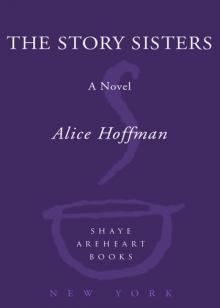 The Story Sisters
The Story Sisters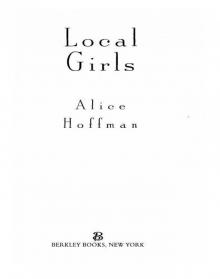 Local Girls
Local Girls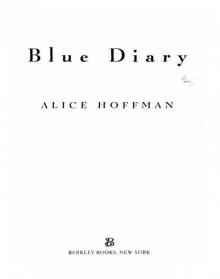 Blue Diary
Blue Diary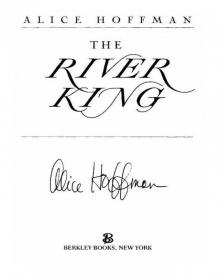 The River King
The River King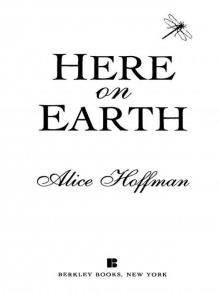 Here on Earth
Here on Earth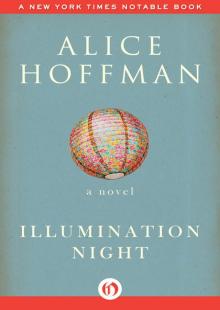 Illumination Night: A Novel
Illumination Night: A Novel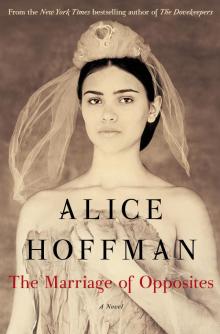 The Marriage of Opposites
The Marriage of Opposites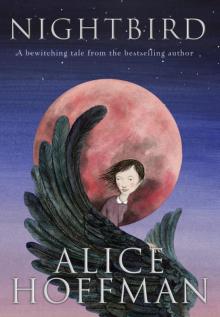 Nightbird
Nightbird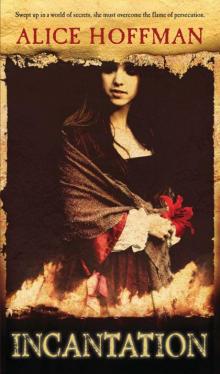 Incantation
Incantation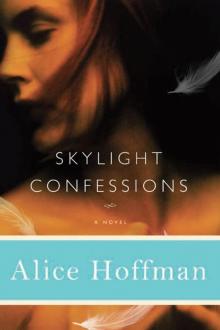 Skylight Confessions
Skylight Confessions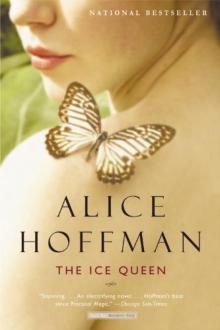 The Ice Queen
The Ice Queen Second Nature
Second Nature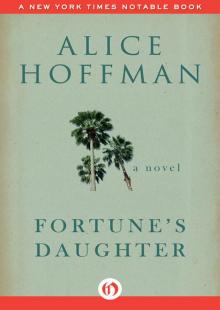 Fortune's Daughter: A Novel
Fortune's Daughter: A Novel Seventh Heaven
Seventh Heaven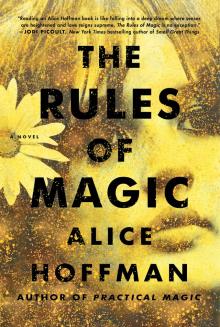 The Rules of Magic
The Rules of Magic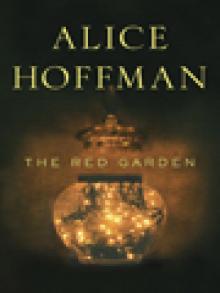 The Red Garden
The Red Garden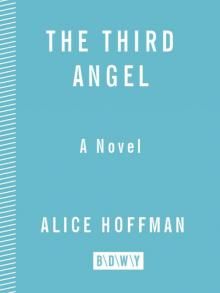 The Third Angel
The Third Angel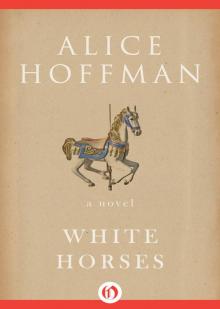 White Horses
White Horses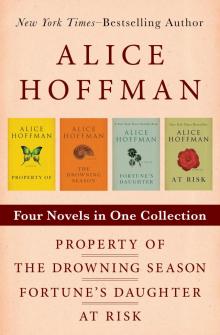 Property of / the Drowning Season / Fortune's Daughter / at Risk
Property of / the Drowning Season / Fortune's Daughter / at Risk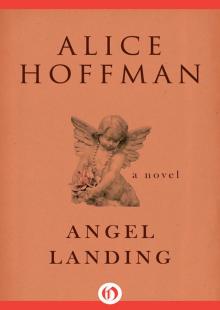 Angel Landing
Angel Landing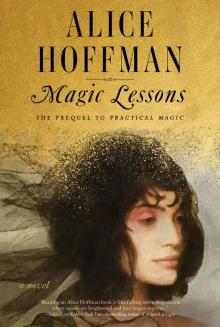 Magic Lessons
Magic Lessons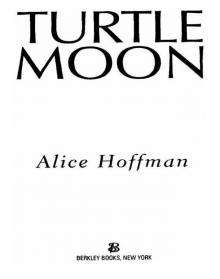 Turtle Moon
Turtle Moon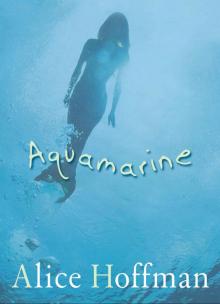 Aquamarine
Aquamarine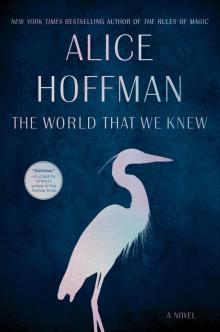 The World That We Knew
The World That We Knew Faithful
Faithful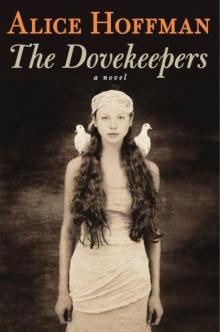 The Dovekeepers
The Dovekeepers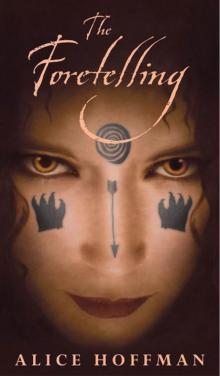 The Foretelling
The Foretelling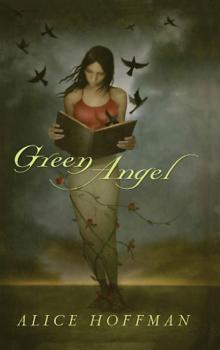 Green Angel
Green Angel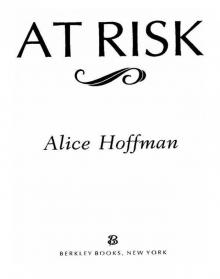 At Risk
At Risk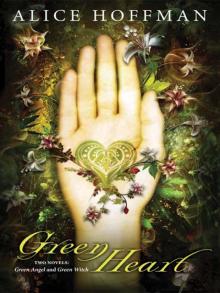 Green Heart
Green Heart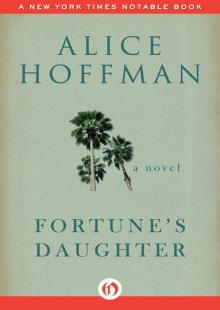 Fortune's Daughter
Fortune's Daughter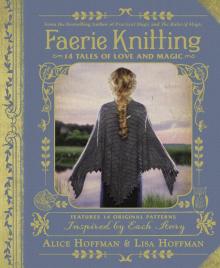 Faerie Knitting
Faerie Knitting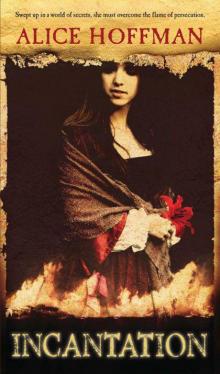 Incantation (v5)
Incantation (v5)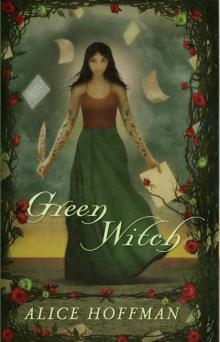 Green Witch
Green Witch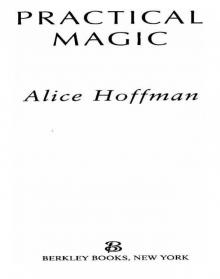 Practical Magic
Practical Magic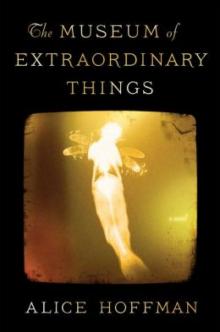 The Museum of Extraordinary Things
The Museum of Extraordinary Things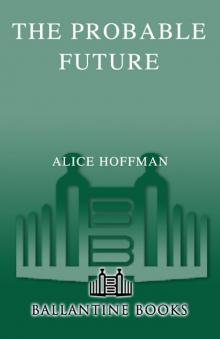 The Probable Future
The Probable Future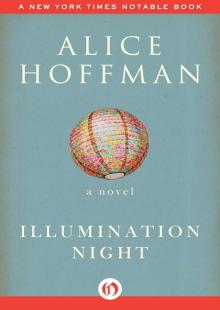 Illumination Night
Illumination Night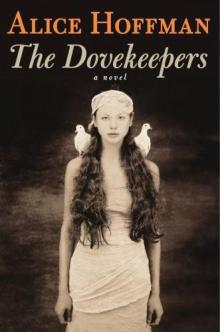 The Dovekeepers: A Novel
The Dovekeepers: A Novel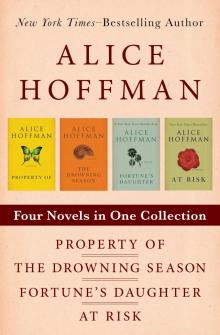 Property Of, the Drowning Season, Fortune's Daughter, and At Risk
Property Of, the Drowning Season, Fortune's Daughter, and At Risk